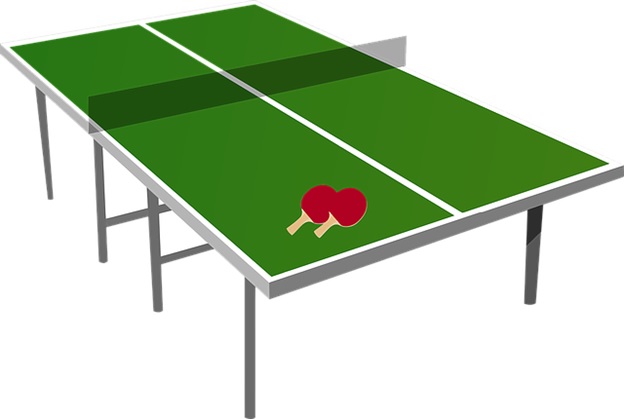6 Reasons Why Ping Pong is Good for Your Brain
Ping pong, also known as table tennis, is an indoor and outdoor sport played by people of all ages. Besides being a recreational activity for family and friends, ping pong offers excellent physical and mental health benefits. It helps you build strength, agility, and speed. Below are a few reasons why ping pong is good for your brain.
- It improves mental acuity
Ping pong is a fast-paced game that requires you to continuously focus on the ball as you quickly make decisions that will help you win. This helps boost mental alertness, improve concentration, developing and improving mental acuity. You need much to enjoy playing ping pong – get a Harvard ping pong table, a net, and a racket, and improve your mental acuity along with other benefits mentioned below.
- Expands pathways
Just like strength training helps you build strength over time, regular brain activity helps strengthen your brain. Ping pong requires you to think faster and react quicker to calculate speed, spin, and ball placement, forcing your brain to create more pathways to replace the depleted ones. The production of these pathways indicates that a significant portion of your brain is active.
- It requires strategy
Since playing table tennis requires strategy, it ends up stimulating your brain. When players anticipate a shot from the opponent, they engage the prefrontal cortex that helps you plan your moves strategically. In older people, ping pong improves the frontal lobe brain’s functionality to regulate voluntary movement, decision making, and problem-solving skills.
Additionally, the aerobics generated by the tennis game stimulates the hippocampus, which is a part of the brain that enables you to learn and retain new things, helping you have a better memory. The hippocampus part of the brain is also responsible for producing new brain cells throughout adult life. Its stimulation leads to increased production of these cells, leading to memory expansion. Additionally, when a player follows and reacts to a spin, parietal lobes translate sensory information which keeps the brain fully engaged.
- Hand-eye coordination
Due to the fast-paced nature of the game and the fast reaction time expected, high hand-eye coordination is necessary. This helps flex the cerebellum and the primary motor cortex parts of the brain that help in movement coordination. The more you play the ping pong sport, the more you engage these brain parts, leading to improved motor control.
- Improved cognitive awareness
Playing ping pong improves motor skills and cognitive awareness, which help increase blood flow to the brain. This not only helps prevent or stall dementia and Alzheimer’s disease.
- Improved mood
During the ping pong game, the brain produces neurotransmitter chemicals which are mood boosters. The fast-paced nature of table tennis makes it an aerobic exercise that releases chemicals that help reduce depression. The brain hormones stimulated by these aerobics include serotonin which affects mood, sleep, appetite, and memory. In addition, dopamine hormones impact pleasurable feelings, movement, and emotional responses, while norepinephrine affects stress responses.
Endnote
Ping pong has several health benefits and poses a low risk of physical injury, making it ideal for even the older generation. Include table tennis in your outdoor routine checklist to keep your brain in check.










